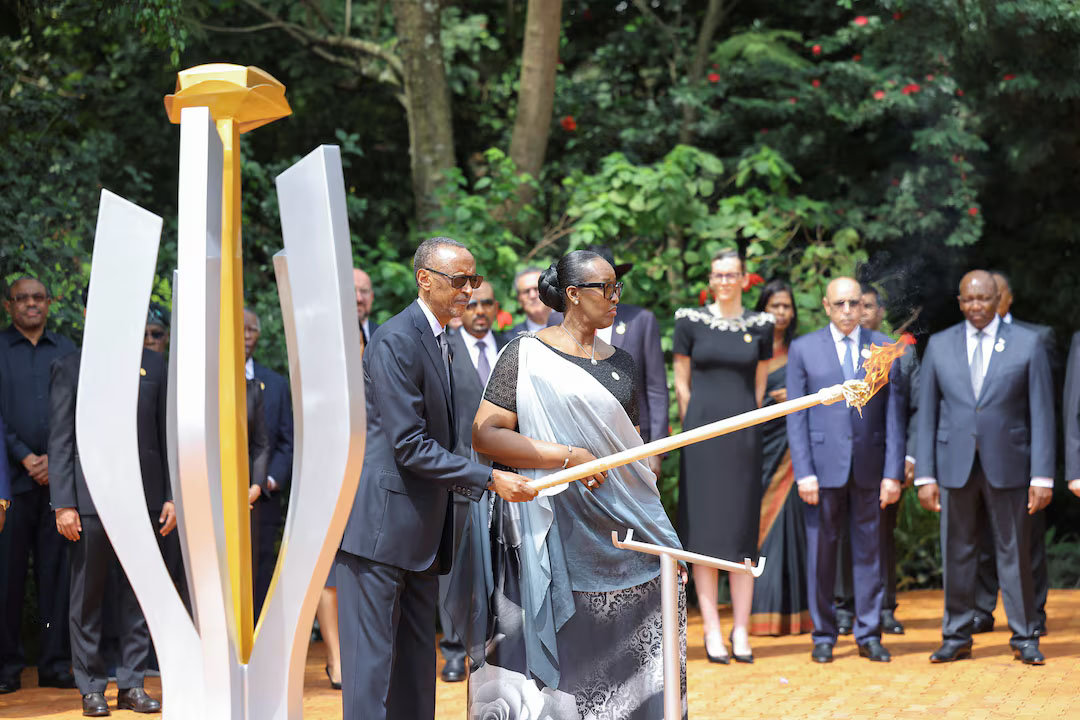KIGALI (Reuters) – Rwanda’s president on Sunday led commemorations to mark 30 years since the 1994 genocide that killed more than 1 million people and said the conditions that led to the slaughter would never be allowed to exist again in his country’s politics.
Over 100 days, starting on April 7 1994, Tutsis and moderate Hutus and were systematically massacred by Hutu extremists, led by the Rwandan army and a militia known as the Interahamwe.
Rwanda’s President Paul Kagame and his wife led 37 visiting leaders at a wreath laying ceremony at a genocide memorial in the capital Kigali that contains the remains of some 250,000 people.
“Genocide is populism in its pure form, because the causes are political the remedies must be as well. For that reason our politics are not organised on the basis of ethnicity or religion and never will be again,” Kagame said at a separate ceremony at a Kigali sports arena.
“Our people will never be left for dead again.”
The International Criminal Tribunal for Rwanda, which was set up in Tanzania in late 1994 to try the masterminds of the genocide, closed in 2015 after convicting 61 suspects.
More prominent suspects have since been caught after decades on the run, and Rwanda’s own internal justice system has handled another nearly 2 million cases.
“We survivors we are strong. We will build the country together,” Marie Louise Ayinkamiye, who was 11 during the genocide, told the audience at the arena.
Ayinkamiye survived the genocide along with her mother and two siblings. Her father and other four siblings were killed.
Kagame has been president since 2000 but effectively in control since his rebel force the Rwandan Patriotic Front marched into Kigali in 1994 to end the genocide. He said his country had taken great strides in the last 30 years.
“The tremendous progress of our country is plain to see and is a result of the choices we made together to resurrect our nation,” he said in his speech.
Kagame has drawn international praise for presiding over peace and economic growth since the end of the genocide.
But he has also faced mounting criticism for what human rights groups say are the suppression of political opposition and the muzzling of independent media, an accusation he and the government denies.
Western nations have accused Rwanda of supporting the M23 Tutsi-led rebels in neighbouring eastern Democratic Republic of Congo. Rwanda denies backing the rebel group and in turn accuses Congo of supporting another group, the Democratic Forces for the Liberation of Rwanda (FDLR), founded by Hutus who fled Rwanda after the genocide.
The instability across Rwanda’s border poses a security threat to the region 30 years on from the mass killings.
As part of the commemoration, the U.N. cultural agency UNESCO unveiled plaques designating four genocide memorial sites to be world heritage sites.





